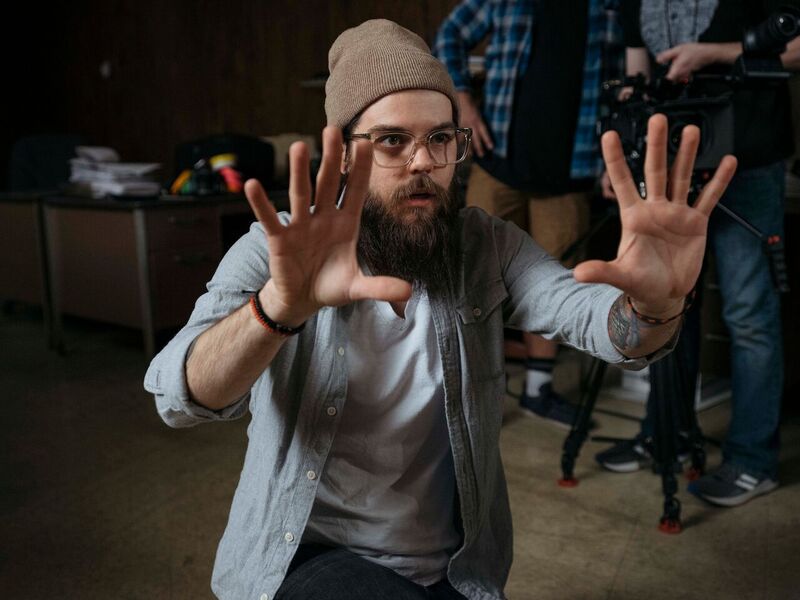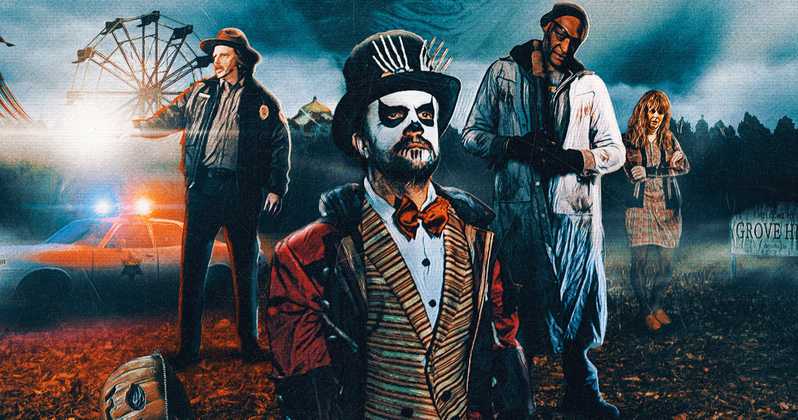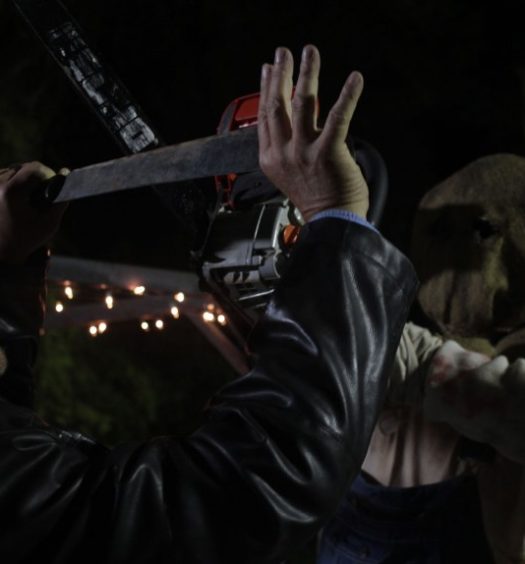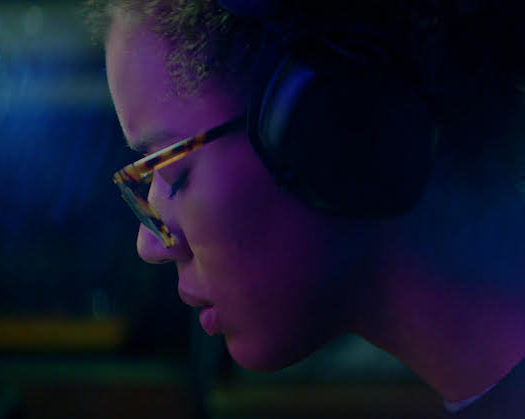The set designs were also unbelievable. I was ready to go outside and for it to be Halloween. It made me want a hot drink and a scarf. I knew that you did the documentary on 31, did you incorporate any Rob Zombie influence into Candy Corn, especially with the set designer?
It was a conscious effort to not be like Rob Zombie, not because I don’t like him. He’s obviously a friend of mine and a mentor and is part of the reason I’m here doing this. I didn’t want to just do what he did, that would be too easy. I learned more from filmmaking by watching The Devil’s Rejects behind-the-scenes documentary than most people do in film school. That’s ultimately why I wanted to do his documentary because I learned so much and he was so influential to me. There’s an inherent sort of Rob Zombie aesthetic in certain ways, but we made a very conscious effort between myself and Shawn not to make it that way.
That’s what I was most proud of, that one of those other influences is in there a little bit, but there’s nothing really hand-held or grindhouse feeling like how Rob’s really great at doing. My cinematography is a lot more composed and moody. With the frames I tried to set up, neither one is better than the other but I think that’s one of the big things I tried to avoid. I wanted to make sure that the camera work was what I really wanted and wasn’t just something you’d expect from someone who worked with Rob Zombie.
Speaking of your camerawork and the utmost simplicity, Candy Corn is a narrative story, but it also has meaning. Is there any sort of message that you kind of wanted to send through Candy Corn?
That’s my mantra. I’ve grown up in the Midwest and I’ve always been the outsider. I never felt like I had a crew or a group of people that I really hung out with. It wasn’t until after high school that I really found people who were like me and one of those people is Michael, who composed the score with me. It’s tough when you’re at that age, and that sticks with you. That sort of shaped the films that I would try to watch, the music I would seek out, and everything about me as a person. There’s that element of it, having the main character be an outsider and sort of an outcast and someone that people call “freak” and all the other awful things that they call Jacob in Candy Corn.

If was going to do it right for the first time, raise money, and work with real professionals, then I wanted to do something that meant a lot to me and something I knew.
I liked this idea of creating a world that was in a heightened reality where it’s not just an anti-bullying movie, it’s a story. Ultimately it’s what I believe films should be, which is entertainment. I love Ari Aster’s stuff, he’s great. I don’t review anything or comment on films whether I love them or hate them, but I had to with Hereditary. I just thought it was absolutely amazing. Though even with that, I felt awful the entire movie and, personally, I don’t want to make films like that. That’s just not my favorite thing about film. I love watching Tarantino’s movies and laughing and being scared and jumping and being disgusted and experiencing all the different emotions within the time you’re sitting there watching the film.
There’s a lot of those pieces that I used in trying to tell the story back to knowing what it’s like to be an outsider. I know what it’s like, I know I’ve seen the anger in people’s faces like the character, Mike, has when he’s saying all these terrible things about Jacob just based on the fact that he is different. I often have, like anybody does in that situation, wanted revenge. When you’re a kid and you’re getting beat up or picked on or whatever, you feel like you don’t have anybody that’s in your corner. That’s what made Frankenstein “Frankenstein.” Frankenstein wasn’t a scary monster; that was the biggest number one influence for the relationship between Dr. Death and Jacob. It was Frankenstein and Frankenstein’s monster. It was the acknowledgement of “Hey, you’re what they call a freak, but they’re actually the freaks and I’m in your corner, kid, and we’re gonna get them back.” It wasn’t too much of an anti-bullying story or that it has to send this message. Ultimately, I want people to enjoy it and have a fun time watching the movie. I want people to appreciate it and be able to tell that we put our hearts and souls into this. It does have some artistic integrity at the end of the day like you said, but you don’t have to go home and research all this stuff. It’s fun. Hopefully you’ll watch it when the leaves start changing every year and you start to feel, like you said, you want to get a hot cup of coffee and a hoodie on and start hearing the Candy Corn music and want to watch it. That’s all I wanted to do.
Interview continues on the next page…































